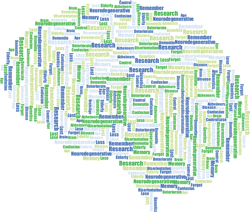The National Institutes of Health (NIH) has awarded funds to Duke University and the University of North Carolina at Chapel Hill to establish an Alzheimer’s Disease Research Center (ADRC), part of a federally funded national network of similar centers.
The research center, one of 33 nationwide, will focus on identifying age-related changes across the lifespan that impact the development, progression and experience of Alzheimer’s and related dementias. The center will also identify how factors that arise in early- and mid-life contribute to racial, ethnic and geographic disparities in dementia.
NIH funding for the joint Duke/UNC center is expected to total $14.8 million over the next five years.
The Duke/UNC center is part of a collaboration between the two universities that began in 2019. It unites experts from a wide range of disciplines that include geriatrics, neurology, psychiatry, radiology, bioinformatics and pathology.
A distinctive feature of the Duke/UNC center is its focus on adults ages 45 to 80 years old and some as young as 25, seeking signals of dementia before memory problems surface. By identifying these biological processes, researchers may be able to develop tools for earlier diagnosis and determine new targets for treatments that prevent or delay onset.
Another key element of the Duke/UNC project is its mission to increase research and clinical trial participation among under-represented groups. The risk of developing Alzheimer’s disease is higher among both Blacks and Latinos compared to whites, yet research studies disproportionately include white participants.
With the NIH ADRC designation, the Duke/UNC collaboration will be recognized as one of the NIH Centers of Excellence. Additionally, as part of the network of centers, this new center will share important research with other ADRCs throughout the country, including data, biological samples, genetic information, therapeutic targets, and imaging and biomarkers, helping scientists across the country and the world learn more about dementia at a faster pace.

